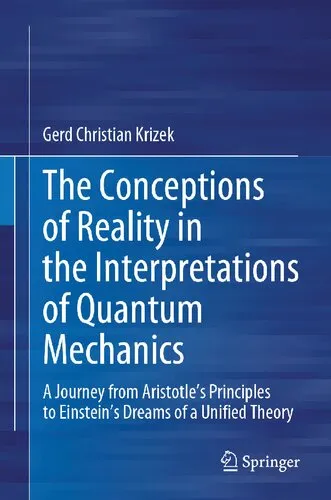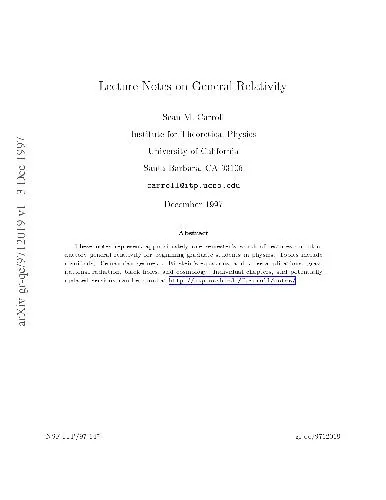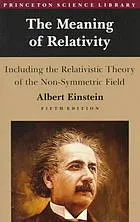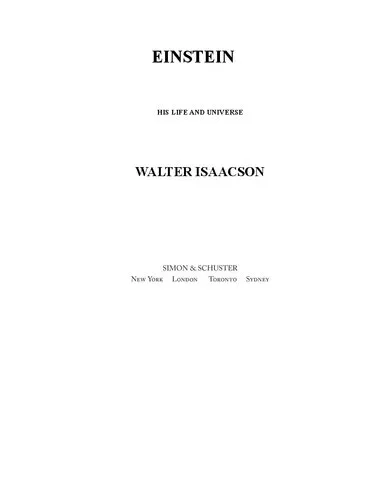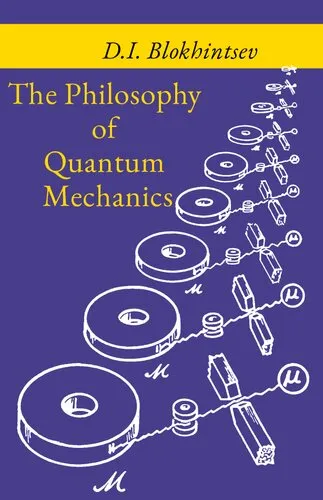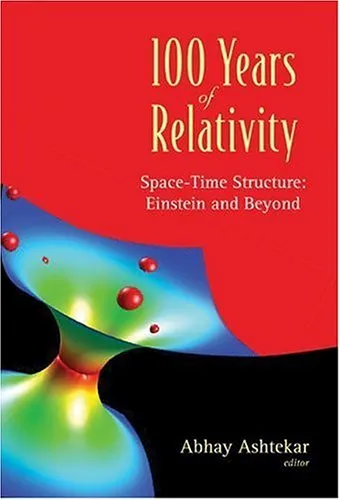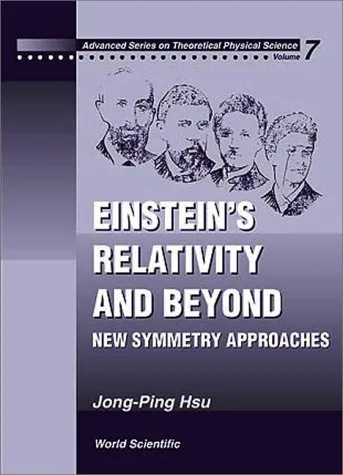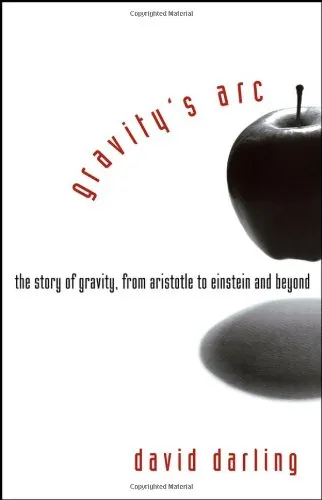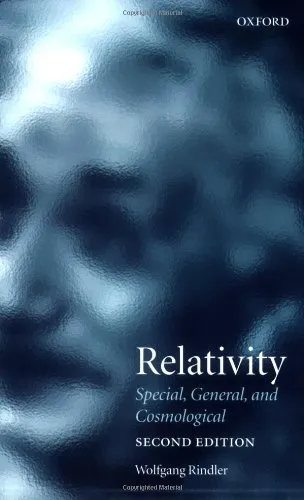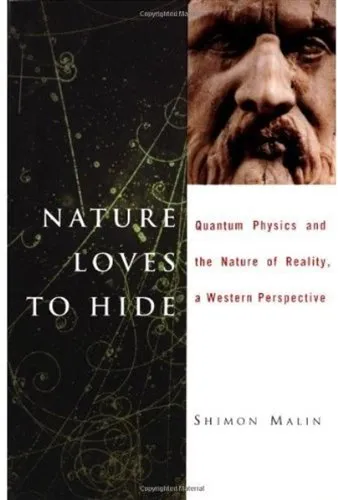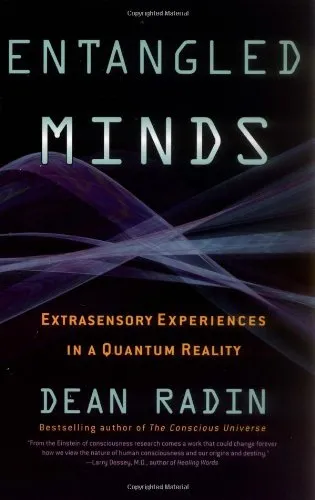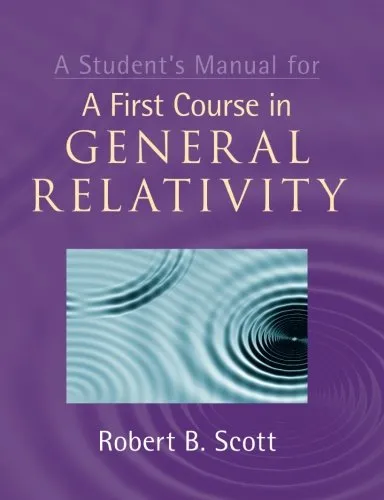The Conceptions of Reality in the Interpretations of Quantum Mechanics: A Journey from Aristotle’s Principles to Einstein’s Dreams of a Unified Theory
3.7
Reviews from our users

You Can Ask your questions from this book's AI after Login
Each download or ask from book AI costs 2 points. To earn more free points, please visit the Points Guide Page and complete some valuable actions.Related Refrences:
Introduction
The nature of reality has long intrigued humanity, inspiring philosophers, scientists, and visionaries to search for answers to the fundamental questions of existence. My book, "The Conceptions of Reality in the Interpretations of Quantum Mechanics: A Journey from Aristotle’s Principles to Einstein’s Dreams of a Unified Theory", explores this ever-enigmatic topic by dissecting how various interpretations of quantum mechanics have shaped our understanding of reality. From the philosophical musings of Aristotle to Einstein’s persistent quest for a unified theory, this book provides readers with a rich, interdisciplinary perspective on the evolution of human thought about the universe.
Why are there so many interpretations of quantum mechanics? How do these ideas relate to our lived experiences of reality? And what might the future hold as science inches closer to unraveling nature’s deepest mysteries? These are some of the questions I aim to address throughout the book in an intellectually stimulating yet approachable manner.
The following sections will provide a detailed summary of the book, its key takeaways, famous quotes you may find stimulating, and the broader significance of this work.
Detailed Summary of the Book
The book embarks on a historical journey, beginning with Aristotle’s conception of causality and the classical understanding of the cosmos as an ordered and deterministic system. After establishing the philosophical groundwork, it transitions into the revolutionary discoveries of modern physics, particularly quantum mechanics, which began to shatter these classical notions of reality. Key figures such as Planck, Heisenberg, Schrödinger, and Bohr are introduced, along with their pivotal contributions to quantum theory.
Central to the narrative are the competing interpretations of quantum mechanics. From the Copenhagen interpretation, which emphasizes probabilities and the central role of measurement, to Everett’s Many-Worlds interpretation, which imagines a constantly branching multiverse, the book highlights how these theories fundamentally differ in their conceptions of what is "real."
As the book progresses, attention turns to the philosophical implications of quantum mechanics, such as the role of the observer in shaping reality, the nature of causality, and the concept of non-locality. Drawing connections to advancements in general relativity, the narrative moves towards Einstein’s dream of unifying quantum theory with the macroscopic laws of gravity.
The book concludes with an in-depth examination of emergent theories like string theory and loop quantum gravity, contemplating what these cutting-edge ideas might mean for our understanding of reality and the ultimate goal of a "Theory of Everything."
Key Takeaways
- Quantum mechanics has profound implications for our understanding of the universe, challenging traditional notions of reality, determinism, and causality.
- The various interpretations of quantum mechanics are not merely academic debates; they have philosophical, technological, and even existential ramifications.
- Understanding the historical interplay between philosophy and physics is crucial to appreciating the evolution of scientific thought.
- Einstein's pursuit of a unified theory showcases the human drive to seek coherence and understanding in the face of complexity.
- Modern advancements such as string theory and quantum gravity may hold the key to deciphering the mysteries of existence, but they also raise new questions about the boundaries of human knowledge.
Famous Quotes from the Book
“Reality, in the quantum sense, is not a fixed entity but a tapestry woven from probabilities, measurements, and interpretations that reflect our deepest questions about existence.”
“To study quantum mechanics is to confront the limits of logic itself and to realize that even in uncertainty, there is a strange, intrinsic beauty.”
Why This Book Matters
In an era where science and philosophy increasingly intersect, this book serves as a guide for both seasoned physicists and curious thinkers who wish to dive deeper into the challenging yet rewarding world of quantum mechanics and its implications for reality. By combining historical context, philosophical introspection, and scientific exploration, it bridges the gap between abstract theory and practical understanding, making complex ideas accessible to readers from diverse backgrounds.
Moreover, the book prompts readers to question their own perceptions of the world and consider how advancements in quantum theory might reshape the future of science, technology, and even human consciousness. By understanding the conceptions of reality inherent in the interpretations of quantum mechanics, we gain not only intellectual insight but also a humbling appreciation for the complexity and wonder of the universe.
This book is not just about learning; it is about rethinking what it means to know and experience reality.
Free Direct Download
You Can Download this book after Login
Accessing books through legal platforms and public libraries not only supports the rights of authors and publishers but also contributes to the sustainability of reading culture. Before downloading, please take a moment to consider these options.
Find this book on other platforms:
WorldCat helps you find books in libraries worldwide.
See ratings, reviews, and discussions on Goodreads.
Find and buy rare or used books on AbeBooks.
1376
بازدید3.7
امتیاز0
نظر98%
رضایتReviews:
3.7
Based on 0 users review
Questions & Answers
Ask questions about this book or help others by answering
No questions yet. Be the first to ask!
